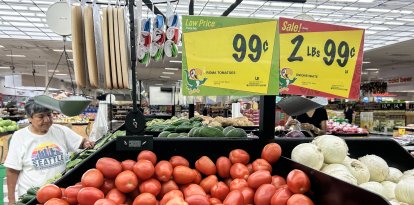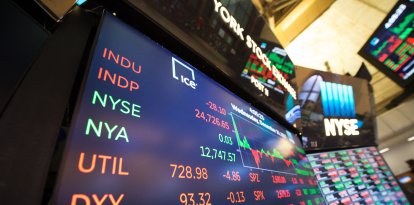Security Threat: China's Interest in US Agriculture
If in 2010 the Asian giant owned 13,720 acres of land in the US, in 2020 it already controlled 352,140.

S. Herman & F. Richter /Pixabay
The U.S.-China Economic and Security Review Commission (USCC) recently warned that China's interest in the agriculture of the United States poses both a serious economic challenge and a security risk to the United States.
China sits on 7-9% percent of the world's arable land, 294 million acres, but is home to nearly 20% (1.4 billion in 2020) of the global population (nearly 8 billion in 2022). By comparison, the US has more than 375 million acres of arable land and a population of 329.5 million.
China has sought to resolve its dilemma of achieving food security by buying up farmland and agricultural businesses abroad on a huge scale, including in the United States, and by seeking to advance its own agricultural technology, including through theft of US agricultural technology.
"The Chinese government's domestic efforts, however, are not enough to solve China's problems, "the USSC report noted.
The more US agricultural technology China acquires, especially through theft, in order to become dominant in the agritech field, the worse the US will fare when it comes to selling its own technology, whether to China or third countries. One of the focus areas of the Made in China 2025 plan to become a world leader in technology and high-tech manufacturing is agricultural machinery such as high-end tractors and harvesters. The specific goal is for China to be able to satisfy 95% of its demand for agricultural machinery with equipment that is manufactured in China. According to the USCC report, those policies, underpinned in part by technological theft, have negatively affected US exports to China of agricultural equipment.
"In 2013, U.S. agricultural equipment sent to China totaled nearly $27 million," the USSC found. "In 2015, the year the Made in China 2025 policy was introduced, exports were at about $16 million and have since dropped to around $9 million in 2021." This has serious implications for US competitiveness, especially because it may also affect US exports to third countries, who may now prefer to buy their agricultural equipment at a lower price from China, where labor costs are minimal.
China has been expanding its ownership of US land over the past decade from 13,720 acres in 2010 to 352,140 acres in 2020, according to the U.S. Department of Agriculture (USDA). China's largest purchase in the US agriculture sector so far has been Smithfield Foods in 2013, the largest pork producer in the US. China's WH Group -- a state-owned company, which began as a meatpacking business in China -- owns it today. At the time of the sale, Smithfield had 25 U.S. plants, 460 farms, and contracts with 2,100 producers in 12 states and the ownership of Smithfield accounted for more than 146,000 acres of US land.
The 352,140 acres that China owns in the US -- 192,000 of them agricultural acres, and the rest "other" land -- is a small amount compared to how much land countries like Canada and the Netherlands own in the US. Canada, for instance, owns 4.7 million acres, while the Netherlands owns 4.6 million acres. Canada and the Netherlands, however, do not constitute threats to the US, nor are they trying to dominate the world.
"The trend is what is most concerning about the almost 200,000 acres," Rep. Dan Newhouse (R-Wash.) said.
The Chinese have not stopped at land, but have expanded their operations to include livestock and grain.
"Chinese scientists have in certain cases chosen to simply steal U.S. agriculture IP and technology rather than try to research and develop them themselves," the USSC noted.
The USSC estimates that each inbred seed "can cost up to $30 million to $40 million in lab costs, field work, and trial and error."
One famous case of seed theft was successfully made by the FBI against Mo Hailong, a Chinese national who was sent to China by the Dabeinong (DBN) Technology Group, a company that makes feed products and is closely connected to the Chinese government. In the US, he collected thousands of inbred corn seeds from fields in Iowa and elsewhere owned by the Monsanto and DuPont Pioneer companies and then shipped the seeds back to China. As part of his operations, Hailong had also purchased two farms in Iowa and Illinois. He was sentenced to three years in prison and a fine.
"Mo Hailong stole valuable proprietary information in the form of seed corn from DuPont Pioneer and Monsanto in an effort to transport such trade secrets to China," said U.S. Attorney Kevin E. VanderSchel at the time.
In a more recent case from April 2022, Xiang Haitao, a Chinese national, was sentenced to 29 months in prison, three years of supervised release, and a $150,000 fine after working as a scientist at the agricultural biotechnology company Monsanto for nearly a decade. He was convicted of attempting to steal a valuable algorithm related to farming from the company and attempting to take it to China so that it could help accelerate technological advancements for the Chinese government.
"The government of China does not hesitate to go after the ingenuity that drives our economy," said Assistant Director Alan E. Kohler Jr. of the FBI's Counterintelligence Division.
China has also made advancements in improving its livestock's genetics, simply by buying US animals. "China has purchased millions of U.S. animals as breeding stock, saving itself decades of time and resources on the advanced agricultural research that goes into improving animal health and nutritional quality..." the USSC noted.
Stealing agricultural intellectual property, however, could not only have significant negative economic consequences, but also possibly military implications in the form of bio-warfare. "While China's main interest in obtaining GM seeds from the United States is in improving its crop yields, the potential weaponization of agricultural IP is possible," the USSC warned.

























